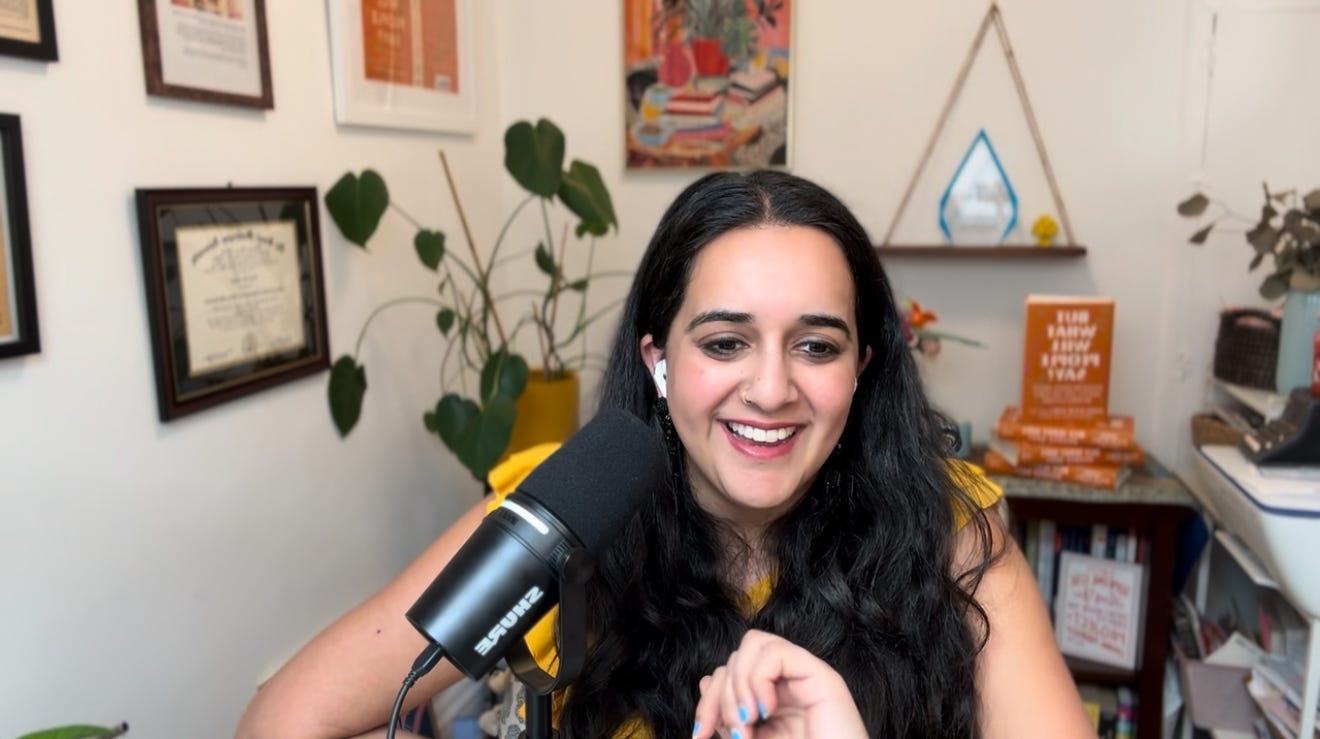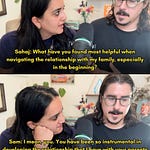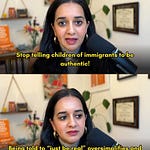Thanks for your patience on this delay of the bonus episode 7. This is a continuation of our conversation last week on boundaries, low contanct, and estrangement.
Lately, I’ve been thinking about how so many of us say yes when we mean no. Not just in romantic or sexual situations, but in our everyday relationships — at home, with family, with friends, and at work.
Many of us cross our own boundaries because we were never taught that they were ours to begin with. That’s what this bonus episode is about.
Often when we talk about consent, we talk about physical and sexual consent, but there’s another type of consent that many of us were not taught — and don’t even realize we lack and is missing in our relationships:
Emotional consent: The right to choose if, when, and how you share your emotions, personal experiences, or inner thoughts with others — without pressure, guilt, or obligation. It’s about having ownership over your emotional world and not being forced to caretake someone else’s feelings or reveal your own before you're ready.
Relational consent: The ability to set boundaries, make choices, and participate in relationships (family, romantic, or social) on your own terms.
It means that your time, energy, and presence are not automatically owed to others, even if you're close.
How many of these do you struggle with?
Being pressured to answer invasive questions about your dating life, mental health, or finances.
Being guilted into emotional caretaking, especially for a parent’s or loved one’s feelings.
Feeling like you have no choice but to show up for family events, calls, or crises, even when you're burnt out.
Having your life decisions (career, marriage, how you spend your money, where you live) questioned or overridden by elders without room for discussion.
Being told how you should feel (“you should be grateful” or “you’re too sensitive”) instead of being allowed to feel what you do
Being expected to hug or kiss relatives or community members, even when it feels uncomfortable.
Having comments made about your body, weight, or appearance without your consent or invitation.
Being expected to be on call for family members’ needs at any time of day.
Being asked to explain or justify how you spend your time if it doesn’t involve family, work, or service.
Being told you're “selfish” for setting boundaries or choosing your needs first.
Feeling unable to say “no” without being seen as disrespectful or “difficult.”
Feeling like you owe your time to your family, even at the cost of your rest, relationships, or healing.
Now, this isn’t about blaming our parents. Many immigrant families passed down emotional codependency as a survival tool. Enmeshment, collectivism, and tight-knit family systems were often necessary in the face of racism, financial instability, and cultural dislocation. But there are long-term repercussions that many of you still struggle with (knowingly or not).
After all, what was once protective can become restrictive. So reclaiming emotional and relational consent as an adult means:
Telling yourself: “My boundaries don’t mean I love you less they mean I’m trying to love myself too.”
Asking: “What do I choose, not just what do I inherit?”
Learning to trust your discomfort as a signal
So if you’re reading this and realizing how many of these examples land for you, I just want to say: you’re not broken. You were likely never taught another way. But I’m here to help you learn emotional and relationship consent.
In this episode we will explore
What emotional and relational consent is — and isn’t
How a lack of emotional or relational consent impacts you today
15 tangible and practical tips for learning emotional and relational consent
And remember: Consent is not just about saying no; it's about knowing you’re allowed to say yes to yourself.
Listen to this episode with a 7-day free trial
Subscribe to Culturally Enough. to listen to this post and get 7 days of free access to the full post archives.











